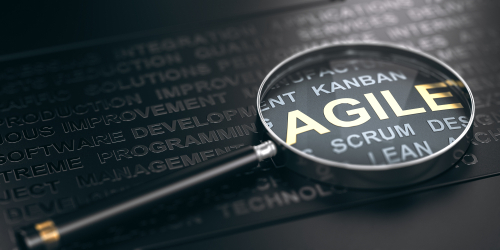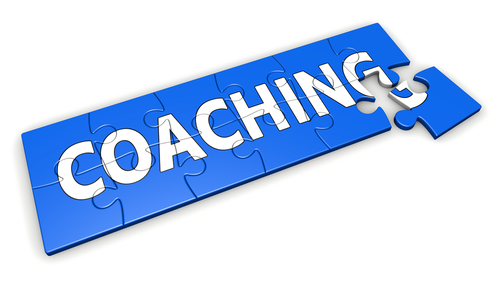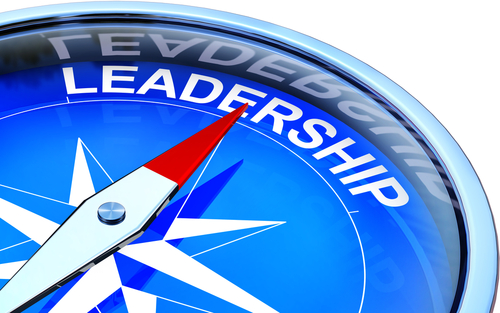What is Leadership Development?
Leadership Development refers to activities which build and expand the capacity of participants to lead, wherever their purpose, context or role. It includes the development of leadership skills and also capacities which enable a broader perspective on the challenges we are facing.
Who is Leadership Development for?
Leadership development can be for anyone who has the desire to lead. Oftentimes, the term ‘leadership’ is conflated with ‘authority’ and it can be presumed that leadership only applies to those in senior roles. However, these terms may or may not co-exist together, indeed you can have one without the other (e.g. someone may lead without authority and indeed someone may have authority and not lead).
Leadership is an activity rather than a role and leadership development is not confined to those in particular positions of authority or the C suite. Participants may work in the business world, in politics, in charitable or community organisations or any other place where they have an opportunity to lead and they may be of any age.
Saying that, it is fair to say that most of the investment in Leadership Development is currently directed at senior leaders in organisations, as the ripple effect, impact on organisational culture and organisational performance and consequently the payback tends to be greater the more senior the participant is.
Why is it important?
Peter Drucker was known to say that ‘management is doing the things right’, whereas ‘leadership is doing the right things’. While management is about doing things efficiently, leadership is about focusing on the right things and making progress on them.
An external perspective:
Every day we are met with articles in newspapers and challenges at work that require us to make progress on challenging issues, yet progress often eludes us. Ron Heifetz and Marty Linsky of Harvard Kennedy School of Government describe adaptive leadership as ‘the capacity to mobilise people to tackle tough challenges and thrive’. This is a capacity we need more of in many arenas in society today. Leadership Development is about developing this capacity. Much is said about the rate of change in the world today, what is spoken less about is how our capacity for leadership and navigation of complexity that needs to keep pace with it. It is interesting how the narrative on change has altered from ‘managing change’ to ‘navigating change’ as the pace of change in our external environments has accelerated and perhaps a realisation that it can’t be just ‘managed’ now or in the future, we must be agile to respond to changes in our environments.

An internal perspective:
As well as keeping pace with external change, we need to lead effectively internally. Good leadership is as much about creating a psychologically safe work environment in which people can thrive, as it is about strategy development, strategy execution and delivering results. In fact, it can be argued that the former is an essential part of delivering the latter. A psychologically safe environment is not something soft and fluffy. It is an environment in which challenging is not just safe, but expected and accountability is clear. Based on the extensive research of Amy Edmonson and The Aristotle Project at Google (where they examined the keys to success based on research of 180 teams), it has been found that psychological safety is an essential foundation for successful and strong teams. In such work environments, there is more innovation and team learning, employee engagement is higher and it is also much easier to retain talent, which all in turn increase business success.

What are the types of Leadership Development?
Leadership Development is in its broadest sense about building capacity to lead, whatever the intervention that enables such development. Leadership Development traditionally takes place in the form of a ‘leadership development programme’, however it may take place in other forms such as through coaching, mentoring etc..
Classroom-based learning:
The traditional type of Leadership Development typically takes place in a classroom. It may be a more formal Executive Education programme with an MBA-style format and 50 or so participants or it may be a more niche programme with maybe 10 or 20 participants, exploring leadership topics together over a period of perhaps six months or so. An alternative to this approach is to develop the team as a unit, through a leadership development programme or team coaching run within an organisation or business.
The more experiential these programmes are the better as they result in much deeper and personal learning. We, at Resonate Leadership call these Leadership Labs, where participants have the opportunity to try out different behaviours, inside and outside the classroom and learn from that experience to expand their leadership repertoire. Traditionally, these have been done in an in-person workshop environment, but Covid has opened up the possibility virtual leadership labs, which can also be considered.
Alternative approaches:
There are however other ways of leadership development taking place. It could happen in as part of a 1-1 coaching engagement or a mentoring relationship (formal or informal) or through on-the-job or life experiences. It is also useful to see others role modelling leadership behaviours enabling us to learn from them. If we are exposed to great leaders, we have the opportunity to see what a ‘good leader’ looks like. Many of these options can be done internally within an organisation and also come at a lower cost.
These different approaches (coaching, mentoring, on-the-job learning etc.) often complement each other for example where a participant is stretched in their role and they have the benefit of coaching or a leadership programme to support and challenge them as they navigate the inevitable bumps.

Vertical and Horizontal Development
When discussing Leadership Development, it is useful to draw the distinction between vertical and horizontal development.
Horizontal Development:
On one hand we have horizontal development, which is about the development of leadership skill-sets or specific skills and/ or knowledge in an area relevant to the needs of the participant. This could include strategy development and strategy execution, communication skills, change management, employee engagement, or other necessary skills which would enable an individual to take their leadership to the next level. In this sense, executive education programmes such as MBAs or management programmes can be considered a form of horizontal development to support Leadership Development.
Vertical Development:
Vertical development is about developing more sophisticated ways of reflecting and thinking enabling us to deal with greater levels of complexity. We develop psychologically through different, stages from childhood through adulthood, which explains the usage of the term ‘vertical’ or ‘stage’ development. Essentially, we continue to build on the psychological growth which started as a child, and with each stage, the level of sophistication in reflection and corresponding action develops. Some researchers (e.g. Bill Joiner) have layered adult stages of development on leadership theory to explain leadership behaviours at these different stages. This gives us a frame (with or without a corresponding psychometric tool) to explore our developmental edge in a leadership development context. I have often heard clients talk about the step from management to leadership, vertical development tools can be a helpful reference in understanding this as well as later transitions.
When Leadership Development has a vertical development lens, it is much more about the growth of the person than the acquisition of new skills or knowledge. Within the leadership development industry, there are those who provide primarily horizontal development programs and those who focus primarily on vertical development programmes. The sweet-spot is a combination of both which will yield both the ability to reflect and act in more sophisticated ways as well as the leadership skills and knowledge needed for the job.

C Suite Leadership Development
In its traditional form, C Suite Leadership Development may involve a senior executive attending an Executive Education programme in a prestigious university setting. Some companies, particularly in professional services, will partner with a university to run dedicated programmes for their senior leaders (established or newly promoted). These are mostly horizontal development programmes.
On the other side of the scale, many senior leaders will engage coaches who will support and challenge them in a 1-1 capacity to broaden their leadership repertoire with an understanding of their specific context. It may not be called ‘leadership development’ but that is typically a core outcome of a coaching engagement with senior leaders. There is a belief in some circles that leadership development is for more junior employees and once at an executive level, the leadership part is nailed, or perhaps it would not be deemed prudent to expose that leadership skills still need to be worked on. The reality is that we are all a work in progress and it is estimated that a mere 1% of us are from a vertical development point of view operating at the most advanced stage. We have noticed an increasing appetite amongst senior leaders to work on this vertical development aspect of leadership development to enhance their leadership capacities.
Leadership Development for the next generation of leaders
A common example of a type of leadership development intervention aimed at the next generation of leaders is a ‘high potential programme’, where identified talent is nurtured to enable them to progress more quickly from a career perspective. This is frequently a key talent development strategy and also helps retain talent and keep future leaders in the business. These types of programmes tend to focus more on soft skills such as communication skills and how to motivate and engage team members, than on developing leaders through a vertical development lens. The tendency has been to focus on horizontal development at earlier career stages through management programmes and then move on to vertical development. This is not an unreasonable strategy and in fact is a good investment, as the need to develop vertically is typically based on the level of complexity we need to navigate in our roles, which typically increases as reach senior leadership roles.
Leadership Development Outcomes
When developing leadership development initiatives, it is really important to set out the goals we are aiming to achieve, so we can assess subsequently if they have in face been successfully achieved. Clients need to see the payback for their investment.
On a recent personal leadership programme we ran for female leaders, our client set out goals to be achieved as follows. They wanted participants:
- To want to progress
- To believe that they can
- To make it happen.
Corresponding to each of these, we were able to measure the extent to which participants felt more motivated to progress, felt an increase in confidence and also had a plan in place to enable them to progress, all as a result of the programme. Of course, no programme sits in isolation, but we need to measure, to the best of our ability, the outcome of programmes and how they relate to the goals as set out, to understand the success rate of the programme delivered.

How to make the most of Leadership Development opportunities
The company perspective:
Taken from the company perspective, it is key when designing leadership development interventions, to start by understanding the population to be developed and group them by needs and level. There will be common sets of skills to be developed within these groups, which can be done in many ways referred to above. In addition, there may be needs around confidence-building which mentoring or peer networks could address. For those who need to elevate their thinking to lead through much greater complexty, then vertical development programmes or coaching may be most appropriate.
The personal perspective:
As an individual, when engaging in a leadership development intervention, it is key to bring an mindset of experimentation to it. Much is made of the importance of reflection and self-awareness in developing leadership skills, but ultimately, we will only know what works and doesn’t work for us when we try out new behaviours and approaches. We can then reflect on their effectiveness and tweak our approach. Success of leadership development interventions is not just about being better able to reflect, but being able to behave in different ways that will enable us to lead our organisations in more effective ways.
How Leadership Development can make a difference
As we face into a future with an ever increasing pace of change, we need to equip our employees with the skills and tools to lead in such an environment. Leadership development can make a difference to the individual. The big gain however is the ripple effect as they impact their teams, the wider organisation and society at large by their leadership impact. It may have been seen as a nice to have in the past and about the development of ‘soft skills’, but it is now perceived as a key component in enabling to develop their talent in leadership roles to deliver on their organisational strategy.
In Summary
Leadership development can come in many forms, through coaching and mentoring, dedicated programmes, role models, on-the-job development and more. It is applicable to everyone, irrespective of their role or level. Most investment is at the most senior levels where it will have greatest impact. As a business, when we are developing leadership talent, the key is understanding the current and future needs of the target group and matching with the appropriate leadership development intervention (skills which need to be developed as well as vertical development component). As an individual, when engaging in a leadership development initiative, the most benefit can be gained by developing an experimental mind-set, to try things out, reflect and tweak, ensuring leadership behaviour changes follow from the programme.
Getting in Touch…
If you wish to explore Leadership Development with Resonate Leadership, please get in touch and one of our coaches will be in touch for an exploratory conversation.


Recent Comments